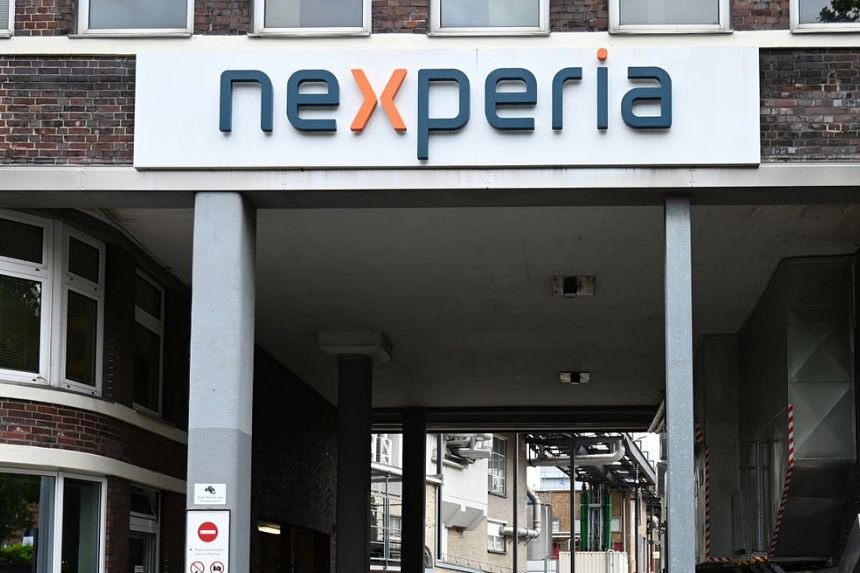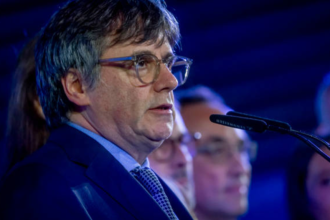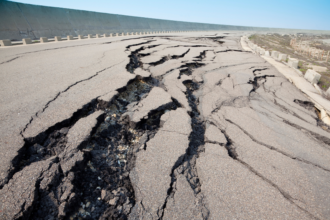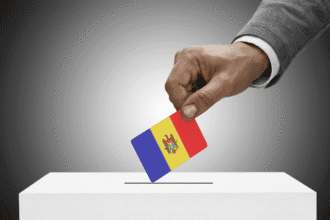In a decisive move that has drawn global attention, the Dutch government has blocked Nexperia, a Chinese-owned chipmaker, citing mounting national security concerns.
- Background of the Nexperia Deal
- Why the Dutch Government Stepped In
- Timeline of Events Leading to the Block
- Legal Grounds for Government Intervention
- National Security Concerns Explained
- China’s Role in the Nexperia Acquisition
- Implications for the Global Chip Industry
- Europe’s Push for Semiconductor Independence
- Impact on China-Europe Trade Relations
- EU and Dutch Policies on Foreign Tech Investments
- Statements from Nexperia and Dutch Authorities
- What This Means for Future Tech Deals in Europe
- Conclusion: A New Era in European Tech Policy
- FAQs
The action has sparked political debate, unsettled financial markets, and intensified scrutiny over foreign ownership in Europe’s high-tech industries.
Far from being a routine administrative step, this was a strategic intervention aimed at safeguarding a vital sector — especially as advanced chip technologies and secure design controls become increasingly central to modern economies.
Background of the Nexperia Deal
Nexperia, headquartered in the Netherlands, was acquired in 2018 by Wingtech, a major Chinese tech company. The acquisition initially passed through without much resistance.
However, with the rise of geopolitical tensions, scrutiny of foreign ownership in critical industries like semiconductors increased dramatically.
Semiconductors are the backbone of everything from smartphones to electric vehicles. Nexperia’s strategic location in Dutch countries in Europe made it a vital part of Europe’s supply chain.
Concerns over control and ownership slowly began to surface among Dutch lawmakers and their allies across the EU.
Why the Dutch Government Stepped In
National Security Comes First
The primary justification offered by the Dutch government was national security.
Officials expressed worry that Nexperia’s ownership by a government owned entity in China might compromise the integrity of supply chains and allow sensitive technologies to fall into the hands of foreign actors.
The move has similarities with actions taken in other Western nations, as fears of espionage, dependency on China, and digital infrastructure risks mount.
This is not just a local issue — it reflects global anxiety about Chinese investments in critical sectors.
Timeline of Events Leading to the Block
- 2018: Wingtech acquires Nexperia.
- 2021–2022: Nexperia’s acquisition of a UK chip plant (Newport Wafer Fab) draws scrutiny.
- Early 2025: Dutch intelligence agencies warn the government about potential risks.
- October 2025: Dutch government invokes emergency powers and takes over Nexperia’s operations.
This timeline shows that the intervention wasn’t sudden — it was the result of years of escalating political and security tensions.
Legal Grounds for Government Intervention
The Dutch government used the Goods Availability Act, a Cold-War era law allowing the state to secure critical goods during emergencies.
While previously unused in tech, it provided the legal basis to intervene in this case.
Lawyers and industry experts argue that this move sets a precedent for future safeguard products international-style protections in the tech sector.
The legal stretch has received both praise and criticism, especially from those watching the balance between free markets and national defense.
National Security Concerns Explained
National security concerns centered around the possibility that peacock Chinese ownership might enable data leaks, sabotage, or undue influence over European digital infrastructure.
While no direct wrongdoing was cited, the Netherlands president emphasized that the potential risk was unacceptable.
Security experts also warned about “backdoors” in hardware and the lack of transparency in the Chinese government’s influence over its corporations.
Nexperia’s chip production includes components used in both civilian and defense applications — a dual-use risk.
China’s Role in the Nexperia Acquisition
Wingtech’s ties to the Chinese state fueled speculation about the nature of its investments.
While Wingtech denies being government owned, its funding and board links suggest otherwise.
Analysts compared this acquisition to patterns seen in chip banking strategies, where China seeks to dominate global tech infrastructure.
The article in Chinese media outlets frames the Dutch action as protectionist, while Western analysts see it as a necessary defensive step.
Implications for the Global Chip Industry
Shockwaves Across Markets
The global chip market is highly interdependent. The Dutch intervention sent Wingtech’s stock diving 10%, affecting related markets.
Suppliers and competitors, including nxp company and nxp semiconductors stock, responded cautiously.
This also puts pressure on other nations — especially those in Asia and North America — to reassess their own policies around foreign control in the semiconductor sector.
Investors are now more alert to geopolitical risks than ever.
Europe’s Push for Semiconductor Independence
The European Union is investing billions in reducing dependence on foreign chipmakers.
The Dutch case fuels support for that effort, highlighting how essential it is to have European-controlled production lines for chips in Amsterdam and beyond.
Programs like the EU Chips Act are gaining momentum. There’s a growing belief that countries like the Netherlands must lead the way in setting secure digital boundaries — possibly under new bodies like a European tech social maker committee.
Impact on China-Europe Trade Relations
Trade relations between China and the EU were already strained. This intervention adds new tension. Beijing has expressed disapproval, claiming the move violates market fairness.
Observers say this could lead to times of Chinese retaliation, potentially impacting exports, investment flows, or even Chinese student visas.
For the Netherlands, it’s a calculated risk — betting that long-term security is worth short-term diplomatic strain. Read another article on the Ukraine government shake-up
EU and Dutch Policies on Foreign Tech Investments
The Dutch decision aligns with wider EU sentiment. European nations have started using stricter design ready controls to monitor and block tech-related takeovers by non-EU players.
Dutch PM Mark Rutte (referred here as netherlands pm) stated that this is part of a “Europe-first” policy shift.
Analysts also point to inconsistencies, noting that cnbc vs nbc reporting offers different tones — showing how media bias plays a role.
Some even relate this situation symbolically to the assault on wall street movie narrative — public interest vs corporate control.
Statements from Nexperia and Dutch Authorities
Official Responses
Nexperia has publicly denied any wrongdoing or national security threat. The company insists it operates independently and is committed to Dutch and EU laws.
In its statement, it emphasized that it is Owned by a commercial group, not directly by the Chinese state.
The Dutch government, however, stood firm. Authorities stated the decision is final and part of a wider plan to prevent vulnerabilities in critical industries, including soil block maker production processes.
What This Means for Future Tech Deals in Europe
This case may reshape how Europe handles Chinese investments. Countries across the continent — from dutch’s Portland to Berlin — are reconsidering open-market doctrines, especially when strategic assets are involved.
Expect more thorough vetting, new country code for Dutch protective legislation, and possibly pan-European frameworks that monitor tech mergers and acquisitions.
This may affect future deals not only in semiconductors but also in AI, biotech, and telecom.
Conclusion: A New Era in European Tech Policy
The fact that the Dutch government blocks Nexperia reflects more than just concern over one company. It signals a broader pivot in how Europe views technology, sovereignty, and global alliances.
While critics argue it may discourage investment, supporters believe it protects Europe’s long-term interests.
With chip technologies becoming the new oil, controlling access and ownership is no longer just a business decision — it’s a matter of national survival.
FAQs
Where is the Dutch parliament building?
The Dutch parliament is located at the Binnenhof in The Hague city centre. It includes historical buildings like the Ridderzaal (Hall of Knights) and is the heart of the Dutch government.
Where is the Dutch street of government?
The Binnenhof serves as the political center of the Netherlands. It houses the States-General, the country’s parliament, and major government offices.
What is the Dutch government called?
The Dutch government is known as the States General of the Netherlands. It consists of two chambers: the House of Representatives (Tweede Kamer) and the Senate (Eerste Kamer).
Which party is in power in the Netherlands?
As of the 2021 elections, the ruling coalition includes VVD, D66, CDA, and CU. Mark Rutte of VVD serves as Prime Minister in the fourth Rutte cabinet.
What is the average Dutch salary?
The average gross salary in the Netherlands is around €44,000 to €46,500 annually. The median is closer to €40,000, with higher earnings in sectors like IT and healthcare.
How much is the Canadian prime minister’s salary?
As of April 2024, the Canadian Prime Minister earns $406,200 CAD per year. This includes both the MP salary and the PM’s official role salary.








